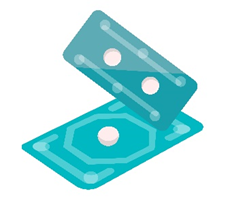Accidents happen! – The lowdown on emergency contraception

An unplanned pregnancy, as a result of unprotected sexual intercourse (UPSI), can cause immense psychosocial distress. In situations of UPSI, the early use of emergency contraceptives can significantly decrease the chance of an unplanned pregnancy (>98% effective if used in the 1st 24 hours). A biological female of reproductive age can purchase and use emergency contraceptive regardless of their marital status. Emergency contraception is an ideal option to be used by those who are not on any form of contraception, if an accident has occurred (e.g., condom break) or in cases of sexual assault.
Oral emergency contraception
The emergency contraceptive pills (containing the hormone levonorgestrel) are available in 2 forms in Sri Lanka; Postinor 1 and Postinor 2. The emergency contraceptive pill should ideally be taken within 5 days (120 hours) of UPSI. Postinor 1 has only one tablet to be taken as soon as possible after UPSI. Postinor 2 has two tablets; the 1st tablet should be taken as soon as possible after UPSI, followed by the 2nd tablet 12 hours later. These pills are available for purchase over the counter at most pharmacies, and do not require a prescription. They mainly act by preventing or delaying ovulation (the ovaries from releasing an egg), but does not cause an abortion.
A regime of combined oral contraceptive pills can also be used for emergency contraception. Four (4) of the hormone pills should be taken together as soon as possible after UPSI and then four (4) more of the hormone pills should be taken 12 hours later. This regime also prevents or delays ovulation from taking place.
Common side effects after taking the oral emergency contraception includes nausea and vomiting, breast tenderness, headaches and changes in menstrual bleeding. If vomiting occurs within 2 hours of taking the pills, the pills must be retaken.
Intra-uterine emergency contraception
The Intrauterine Copper Device (also known as the IUCD or “the loop”) is a common form of non-hormonal contraception that can also be used for emergency contraception if inserted into the uterus within 5 days (120 hours) of unprotected sex. The IUCD is an extremely effective emergency contraceptive as it prevents the fertilization of the egg and sperm. It does not cause an abortion. Once inserted, the IUCD can be kept for up to 10 years.
Common side effects experienced by IUCD users include mild abdominal cramping and bleeding after insertion. There can also be an increase in the duration of menstrual bleeding.
As emergency contraception does not protect against sexually transmitted infections (STI), it is recommended to speak to a medical doctor if there is a concern of having contracted STIs after UPSI. Emergency contraception is also not permanent and will not affect the future fertility of the user. Over the years, emergency contraceptive options have gained popularity due to increased accessibility, affordability and their user-friendly approach. It is however, important to remember that emergency contraceptive pills should only be used for emergency situations and NOT used as regular contraception.
.png)



